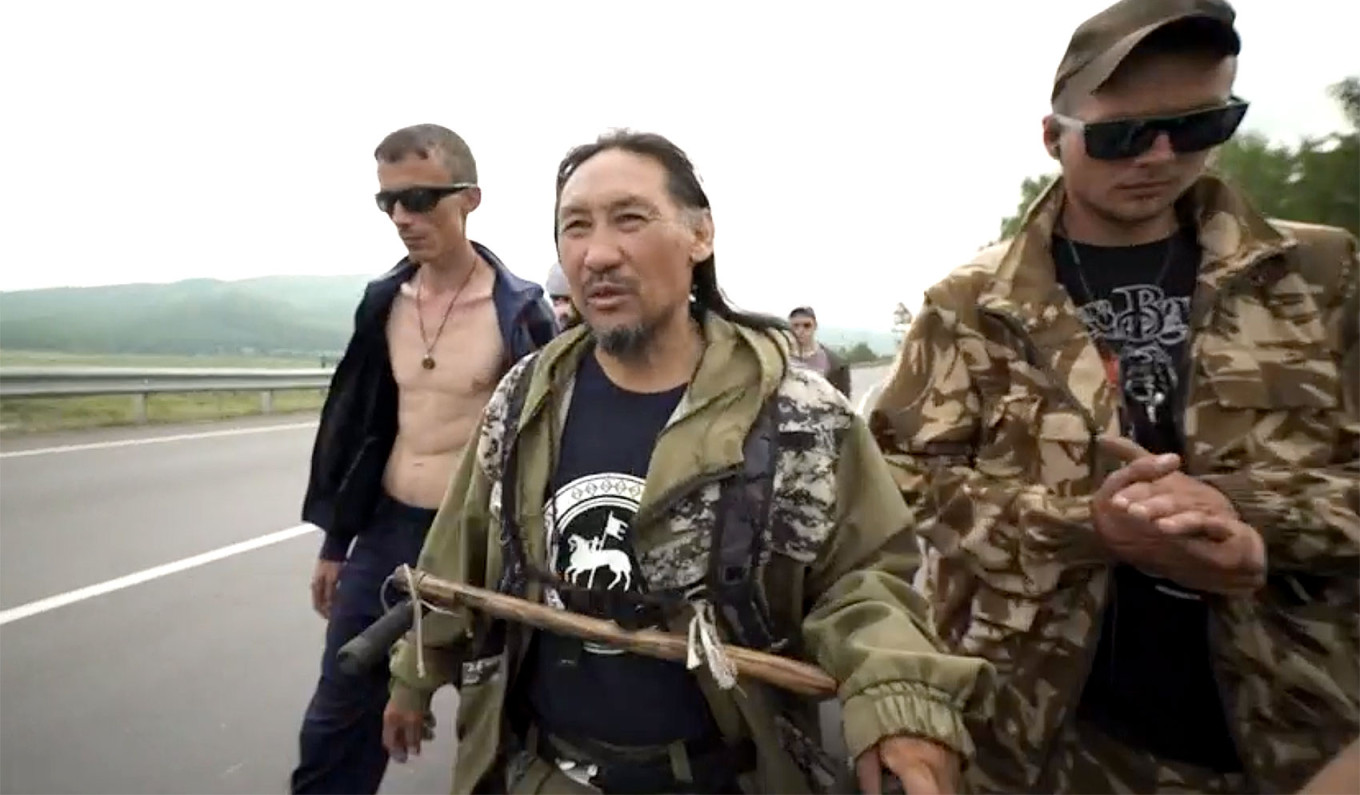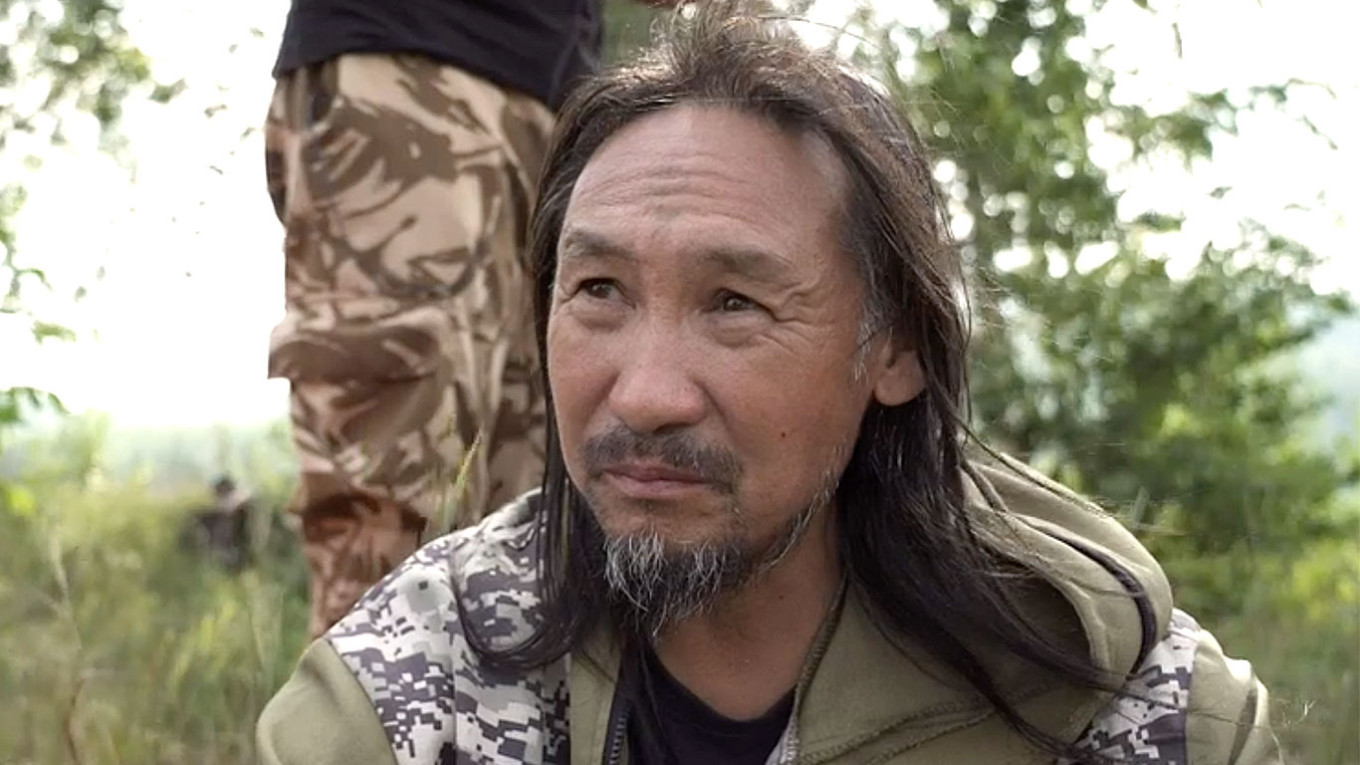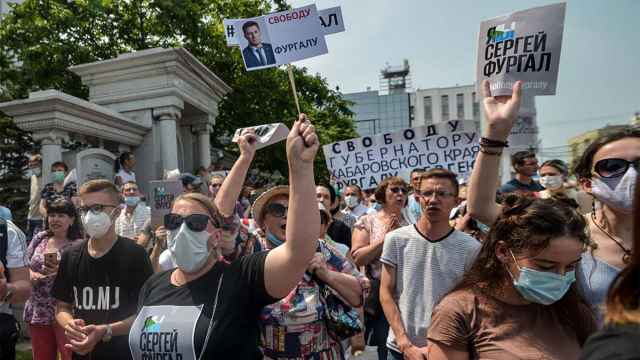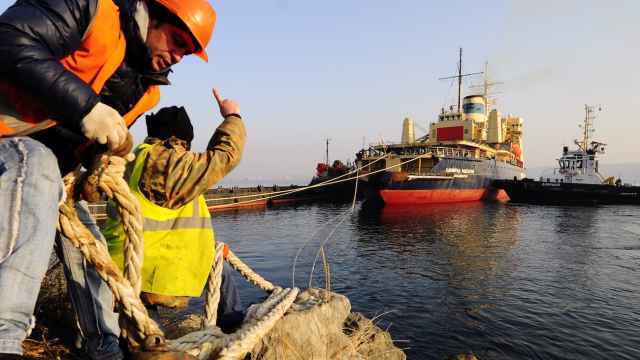Alexander Gabyshev, a self-styled shaman from Russia’s Far East, has been held in compulsory psychiatric treatment since 2019, after he set out on a cross-country trek to Moscow with the goal of peacefully expelling President Vladimir Putin from power and “restoring democracy” to Russia by performing a shamanic ritual on Red Square.
On Monday, a court in Russia’s Far East ordered to transfer him from a neuropsychiatric dispensary to a general psychiatric hospital in Yakutsk, where he will undergo a “milder” form of treatment.
Russia’s Memorial human rights organization has declared Gabyshev to be a political prisoner.
The Free Yakutia Foundation, an anti-war movement in Gabyshev’s home republic of Sakha, has penned this op-ed on how Gabyshev’s message was able to resonate with so many ordinary Russians.
Two years have passed since Alexander Gabyshev's second placement for compulsory treatment in a psychiatric dispensary. The practice of using punitive psychiatry as a tool to silence dissidents has been known and loved in Russia since the persecution of Pyotr Chaadayev by the Okhranka, the Tsar’s security service, in the 19th century.
However, the focus of this discussion is not on historical examples, but rather on the phenomenon of the “Warrior Shaman” and its place in both Gabyshev’s native republic of Sakha and Russian politics.
Alexander Prokopyevich Gabyshev, a janitor, welder, handyman, and graduate of the history department at Yakut State University, initially appeared to be an ordinary citizen who didn't fit into the prevailing capitalist system.
But he, unlike so many others, had the courage to speak out against loneliness, disorder and injustice.
His campaign, which began in August 2018, initially had no specific objectives, although Gabyshev identified himself as a pilgrim and someone who embraced the beliefs of Indigenous peoples of the North.

In the summer of the following year, Gabyshev shifted his focus from missionary work to the political agenda, perhaps recognizing the demand for change in his interactions with others.
The shaman embarked on a cross-country trek and pledged to hold an Algys ceremony on Red Square, after which, he believed, Putin would resign voluntarily. Despite the seemingly archaic image he adopted, Gabyshev advocated for the establishment of democratic values, emphasizing the need for a balanced relationship between the government and the people:
“Democracy must be without fear. Now people are afraid to speak, they are afraid that they will be fired, they will be deprived of their salaries... ...There must be a balance between the government and the people. And the struggle for balance sometimes goes on, yes, by bloody methods, if the tyrannical state regimes do not allow them to balance their power in a democratic way. And Putin will defend statehood, which we will now try to balance with democracy.”
Although Alexander Gabyshev's campaign was short-lived, any news related to the "Warrior Shaman" inevitably garnered millions of views and thousands of supportive comments. Additionally, he amassed a sizable group of direct followers.
What caused this?
The popularity of this unsuccessful and seemingly naive protest march can be attributed to the boldness and simplicity of Gabyshev’s image. One can draw parallels between his trek from Russia’s Far East to Moscow with Mahatma Gandhi's "Salt March," Lenin's "walkers," or even with the plot of the 1998 Russian tragicomedy starring Mikhail Evdokimov, “Why Don't We Send... a Messenger?”

The shaman's pilgrimage to Red Square is a peaceful and relatable expression of despair, representing an ordinary person’s final attempt to reach out to the authorities in Moscow. The homemade shaman's tambourine becomes the voice of millions of Russians, and the smoke from an unlit ritual bonfire symbolizes the fire that those who haven't heard the "Shaman Warrior's" call will soon witness.
It may be that the dictator's superstitious nature and love for rituals and spiritualism played a role in the decisive and aggressive arrest of the shaman. Currently, Gabyshev remains under compulsory treatment, effectively making him a political prisoner.
In the eyes of the Kremlin, this former welder and hard worker is deemed more dangerous than Navalny and Yashin, as the rebellion of an ordinary person, which resonates with most Russians, is difficult to analyze and predict in terms of its potential threat to the existing constitutional order.
A Message from The Moscow Times:
Dear readers,
We are facing unprecedented challenges. Russia's Prosecutor General's Office has designated The Moscow Times as an "undesirable" organization, criminalizing our work and putting our staff at risk of prosecution. This follows our earlier unjust labeling as a "foreign agent."
These actions are direct attempts to silence independent journalism in Russia. The authorities claim our work "discredits the decisions of the Russian leadership." We see things differently: we strive to provide accurate, unbiased reporting on Russia.
We, the journalists of The Moscow Times, refuse to be silenced. But to continue our work, we need your help.
Your support, no matter how small, makes a world of difference. If you can, please support us monthly starting from just $2. It's quick to set up, and every contribution makes a significant impact.
By supporting The Moscow Times, you're defending open, independent journalism in the face of repression. Thank you for standing with us.
Remind me later.








